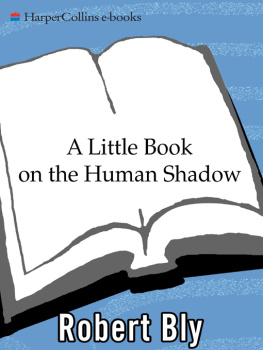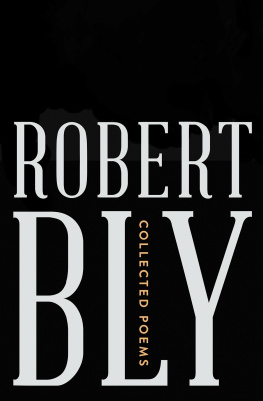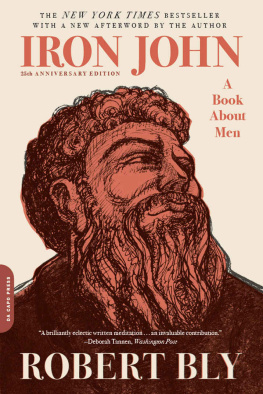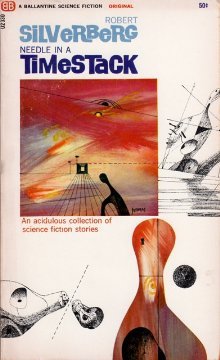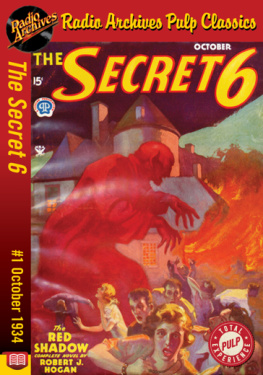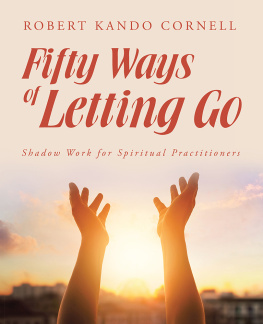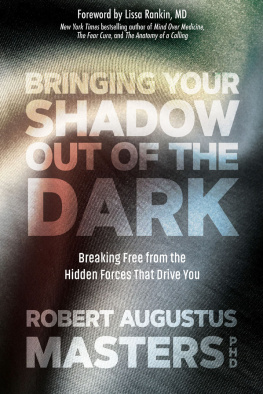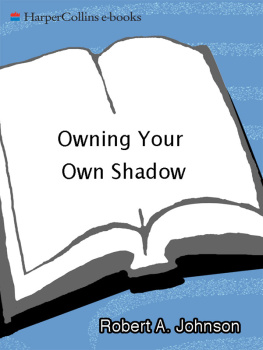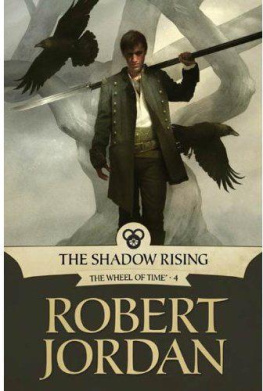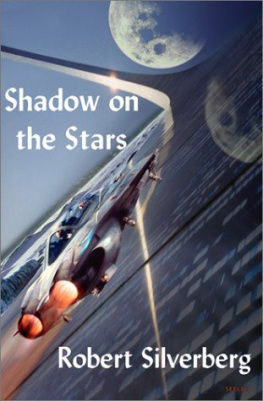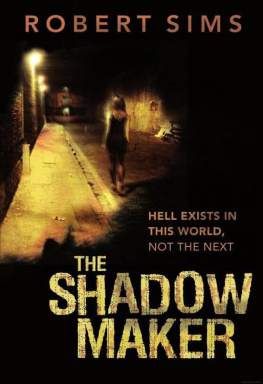Robert Bly - A Little Book on the Human Shadow
Here you can read online Robert Bly - A Little Book on the Human Shadow full text of the book (entire story) in english for free. Download pdf and epub, get meaning, cover and reviews about this ebook. publisher: HarperCollins, genre: Children. Description of the work, (preface) as well as reviews are available. Best literature library LitArk.com created for fans of good reading and offers a wide selection of genres:
Romance novel
Science fiction
Adventure
Detective
Science
History
Home and family
Prose
Art
Politics
Computer
Non-fiction
Religion
Business
Children
Humor
Choose a favorite category and find really read worthwhile books. Enjoy immersion in the world of imagination, feel the emotions of the characters or learn something new for yourself, make an fascinating discovery.
- Book:A Little Book on the Human Shadow
- Author:
- Publisher:HarperCollins
- Genre:
- Rating:4 / 5
- Favourites:Add to favourites
- Your mark:
- 80
- 1
- 2
- 3
- 4
- 5
A Little Book on the Human Shadow: summary, description and annotation
We offer to read an annotation, description, summary or preface (depends on what the author of the book "A Little Book on the Human Shadow" wrote himself). If you haven't found the necessary information about the book — write in the comments, we will try to find it.
A Little Book on the Human Shadow — read online for free the complete book (whole text) full work
Below is the text of the book, divided by pages. System saving the place of the last page read, allows you to conveniently read the book "A Little Book on the Human Shadow" online for free, without having to search again every time where you left off. Put a bookmark, and you can go to the page where you finished reading at any time.
Font size:
Interval:
Bookmark:

Edited by William Booth

by William Booth
Problems in the Ark
The Long Bag We Drag Behind Us
Five Stages in Exiling, Hunting, and Retrieving the Shadow
Honoring the Shadow: An Interview with William Booth
Wallace Stevens and Dr. Jekyll
W hat Robert Blys poetry readings say in effect is, You must change your life. To hear serious poems and resist all change is worse than a waste of time; it is dangerous. We can remember the warning from Jacob Boehme: Boehme has a note before one of his books in which he asks the reader not to go further and read the book unless he is willing to make practical changes as a result of the reading. Otherwise, Boehme says, the book will be bad for him.
The reference to Boehmes unsettling words appears in Robert Blys brilliant essay on the poetry of Wallace Stevens (part five of this book). In Wallace Stevens and Dr. Jekyll, Bly praises Stevens extraordinary sensory intelligence, but says that his failure to change his life was disastrous to his later poetry. Shadow is the key word in Blys assessment of the poet: Stevens brought the shadow into his poetry but shut it out of his everyday life. Blys tough judgment of Stevens work after he failed to live the shadow is that the late poems are as weak as is possible for a genius to write.
Shadow is one of Carl Jungs most useful terms for a part of the human psyche. Its advantage is that it conveys a visual imagewe might call the shadow the dark, unlit, and repressed side of the ego complex, the Jungian analyst Marie Louise von Franz says in Shadow and Evil in Fairy Tales . But this is only partly true, she adds, lest we get caught in the negative connotation of the image. She tells of an occasion when Jung, impatient as always with Jungians, dismissed a nit-picking discussion of the concept by protesting, This is all nonsense! The shadow is simply the whole unconscious. The definition Von Franz settles on is neutral and lucid: in the first stage of approach to the unconscious, the shadow is simply a mythological name for all that within me of which I cannot directly know.
Robert Blys intense interest in the concept of the human shadow goes back to early years when he lived alone in New York City. He has often spoken of this bleak period of his life, recalling an awareness of his own relationship to the shadow as one of the first things he understood clearly for himself. He knew that if any help was going to arrive to lift me out of my misery, it would come from the dark side of my personality. The quotation is from the 1971 poetry reading where he first chose the shadow as a thematic image. He took up the theme in three subsequent readings, though the selection of poems changed and his accompanying commentary grew.
In the present collection of Blys explorations of the shadow there is more poetry and storytelling than doctrinaire psychological discourse. He moves from image to image, and from image to anecdote and fairy tale. The shadow is the long bag we drag behind us, heavy with the parts of ourselves our parents or community didnt approve of. The shadow is also imagined as a thin gray film rolled up in a can, out of sight, but ready to transfix us with lifelike images thrown onto a giant screen or played on a wife or husbands face. The long-repressed shadow of Dr. Jekyll rises up in the shape of Mr. Hyde, deformed, an ape-like figure glimpsed against an alley wall. Bly goes beyond such vivid evocation of the shadows meaning in part three of this book (Five Stages in Exiling, Hunting, and Retrieving the Shadow), showing what one can do to change ones life, call up the energy lost in the shadow, bring back the witch and the giant.
Gathering the shadow readings into a book was a thought that came out of conversations I had with Roger Easson, who has done extensive bibliographical research into Blys publications and recorded readings. Initially it seemed a simple enough matter to transcribe two or three readings, do some editing for the sake of sharper focus, and make the readings available in print.
When Bly saw the transcriptions that Easson and I had done, he was more distressed than we about what had been lost between the stage and the pagevoice, music, gesture, interchange with the audience, all those nonverbal elements that convey meaning and feeling. Extensive revision followed. While the substance of the first three sections of this book is faithful to the original readings, Blys revisions have brought them closer to the essay form.
The first part of this collection, Problems in the Ark, is based on a studio reading recorded for the series Contemporary American Poets Read Their Works, issued by Cassette Curriculum in 1971. Parts two and three are adapted from a reading given for a conference in San Francisco on The Face of the Enemy, January 30, 1983. Part four is a conversation that Bly and I had about the shadow a year or so later. Part five, where Bly lets go the readers hand and moves swiftly ahead into the shadowy forest of Wallace Stevens poetry, first appeared in American Poetry in 1976 , edited by William Heyen.
William Booth
W e notice that when sunlight hits the body, the body turns bright, but it throws a shadow, which is dark. The brighter the light, the darker the shadow. Each of us has some part of our personality that is hidden from us. Parents, and teachers in general, urge us to develop the light side of the personalitymove into well-lit subjects such as mathematics and geometryand to become successful. The dark part then becomes starved. What do we do then? We send out a crow.
The dove returns: it found no resting place;
It was in flight all night above the shaken seas;
Beneath dark eaves
The dove shall magnify the tigers bed;
Give the dove peace.
The split-tailed swallow leaves the sill at dawn;
At dusk, blue swallows shall return.
On the third day the crow shall fly.
The crow, the crow, the spider-colored crow,
The crow shall find new mud to walk upon.
The poem refers to the Noah story, though I drew the images from an earlier version composed by the Babylonians, in which three birds took part. The poem came two or three years after college, and it seems to say that if any help was going to arrive to lift me out of my misery, it would come from the dark side of my personality. I remember this as one of the first things I understood clearly for myself. I felt that it was true also in politicsthat is, what we needed to help us in the nation was not someone like Adlai Stevenson, who was too much like a swallow, or Bertrand Russell, who had too much light in his personality. Even Eugene McCarthy later on, who had a little more of the dark side, seemed to me a swallow, unable to find mud. Birds have become a problem for the United States. All we elect to the Presidency are doves or swallows, or white crows like Nixon.
One afternoon, several years later, watching snow fall on some long grass, I felt the positive dark come in again.
I
The grass is half-covered with snow.
It was the sort of snowfall that starts in late afternoon.
And now the little houses of the grass are growing dark.
II
If I reached my hands down, near the earth,
Font size:
Interval:
Bookmark:
Similar books «A Little Book on the Human Shadow»
Look at similar books to A Little Book on the Human Shadow. We have selected literature similar in name and meaning in the hope of providing readers with more options to find new, interesting, not yet read works.
Discussion, reviews of the book A Little Book on the Human Shadow and just readers' own opinions. Leave your comments, write what you think about the work, its meaning or the main characters. Specify what exactly you liked and what you didn't like, and why you think so.

